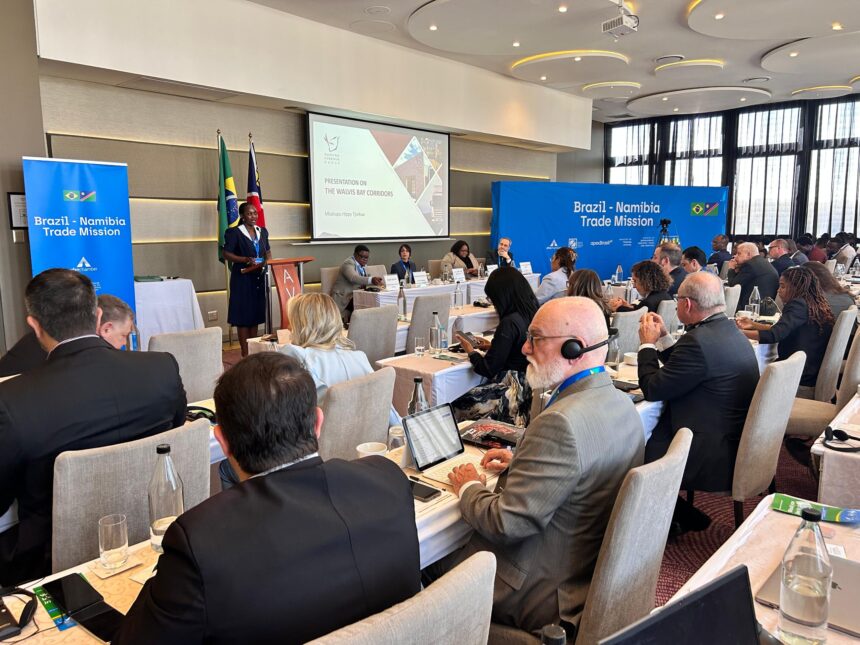Trade minister Lucia Iipumbu stated the 2024 SADC Summit that took place in Zimbabwe last week paved the way for the commencement of the Tripartite Free Trade Area (TFTA) agreement. This will ultimately allow for direct trade among the subscribing countries, and should eventually bring the region closer to the broader goals of the African Union.
This recent milestone represents a significant step forward in SADC’s efforts to promote regional integration and economic development.
“The summit signalled the commencement of the enforcement of the tripartite facility. All these are now configured into one, and we are now able to trade amongst those on the removed tariffs. The tripartite brings us closer to many African countries, but as of now, we can trade directly with those countries that have subscribed to the agreement, which is an extension to the bigger configuration to the African Union at large,” said Iipumbu yesterday.
She made these remarks while addressing the business community at the occasion of Brazil Trade and Investment Mission to Namibia 2024, which is scheduled to take place under the theme “Brazil – Namibia: partners across the ocean, exploring trade and investment opportunities”.
The TFTA brings together three major regional economic communities in Africa: The Common Market for Eastern and Southern Africa (Comesa), the East African Community (EAC), and SADC. The agreement effectively removes tariffs, and facilitates direct trade among subscribing countries.
By eliminating trade barriers and promoting the free movement of goods, the TFTA is anticipated to boost intra-regional trade and investment, contributing to sustainable economic development and poverty alleviation.
Iipumbu added that the summit also emphasised the importance of industrialisation as a key driver for sustainable economic growth within the region, aligning with the SADC Industrialisation Strategy and Roadmap.
“At the concluded SADC Summit, a clarion call was extended to ensure that we take up huge opportunities available in these markets by manufacturing and adding value to our products, in order to infuse finished goods in these African markets, whereby about 85% of tariffs are liberalised,” the minister added.
Meanwhile, yesterday’s event comprised 30 Brazilian companies and 60 delegates from Brazil, looking at how the two countries can collaborate and pen partnerships to promote more trade.
Iipumbu noted; “As two countries, we need to do more in order to increase trade amongst each other by leveraging on existing frameworks for cooperation.” In 2023, Namibia exported products worth US$3.5 million to Brazil. These are refined petroleum and precious stones. In return, Brazil exported products worth US$12.7 billion to Namibia, mainly consisting of poultry meat and raw sugar. These statistics show a consistent picture of a positive trade balance in favour of Brazil. Iipumbu noted there is an urgent need to identify, through these engagements, key opportunities for collaboration, particularly in terms of value chain development and value addition to raw material, focusing specifically on competitive and comparative advantages.
The minister also pointed out that Namibia is committed to finalising the Investment Promotion and Facilitation Bill, which is crafted to address all bottlenecks that may be encountered by investors, and ease all investments in the country.
At the same event, Brazilian ambassador to Namibia Vivian Sanmartin said trade between the two countries is low, and less diversified.
“We need to work together to improve our trade statistics. Brazil is well-positioned to provide many goods to Namibia at competitive prices,” she said. -mndjavera@nepc.com.na


